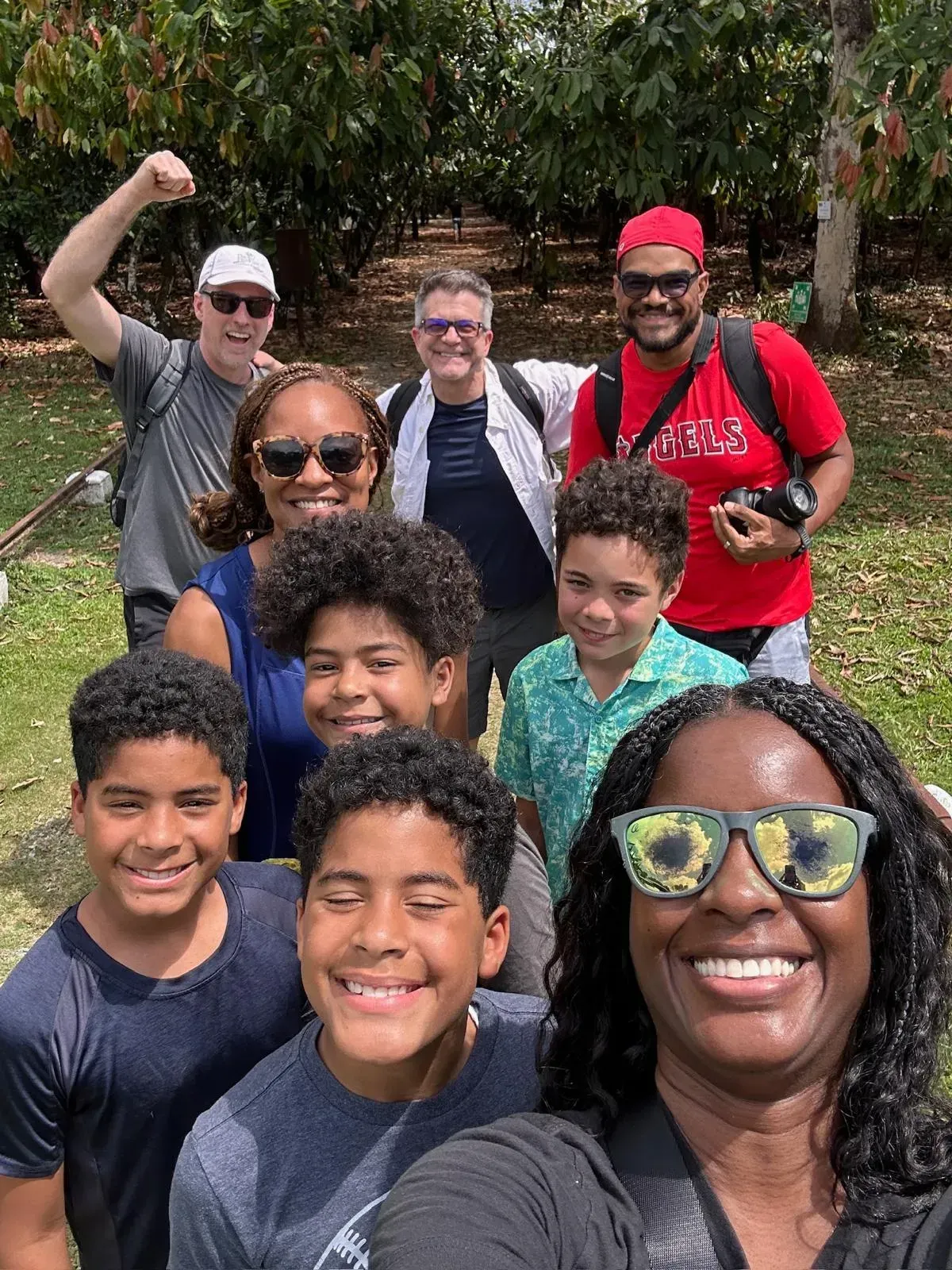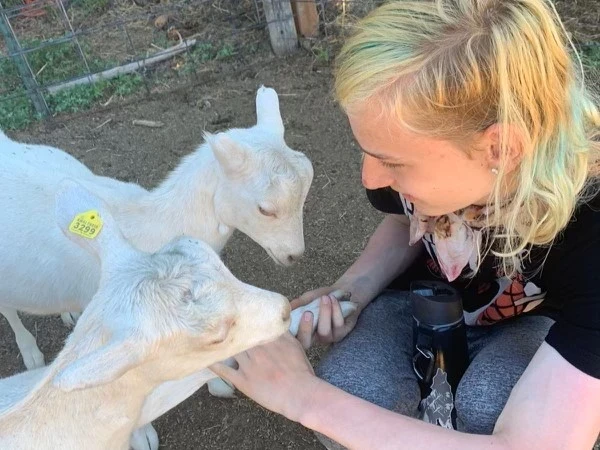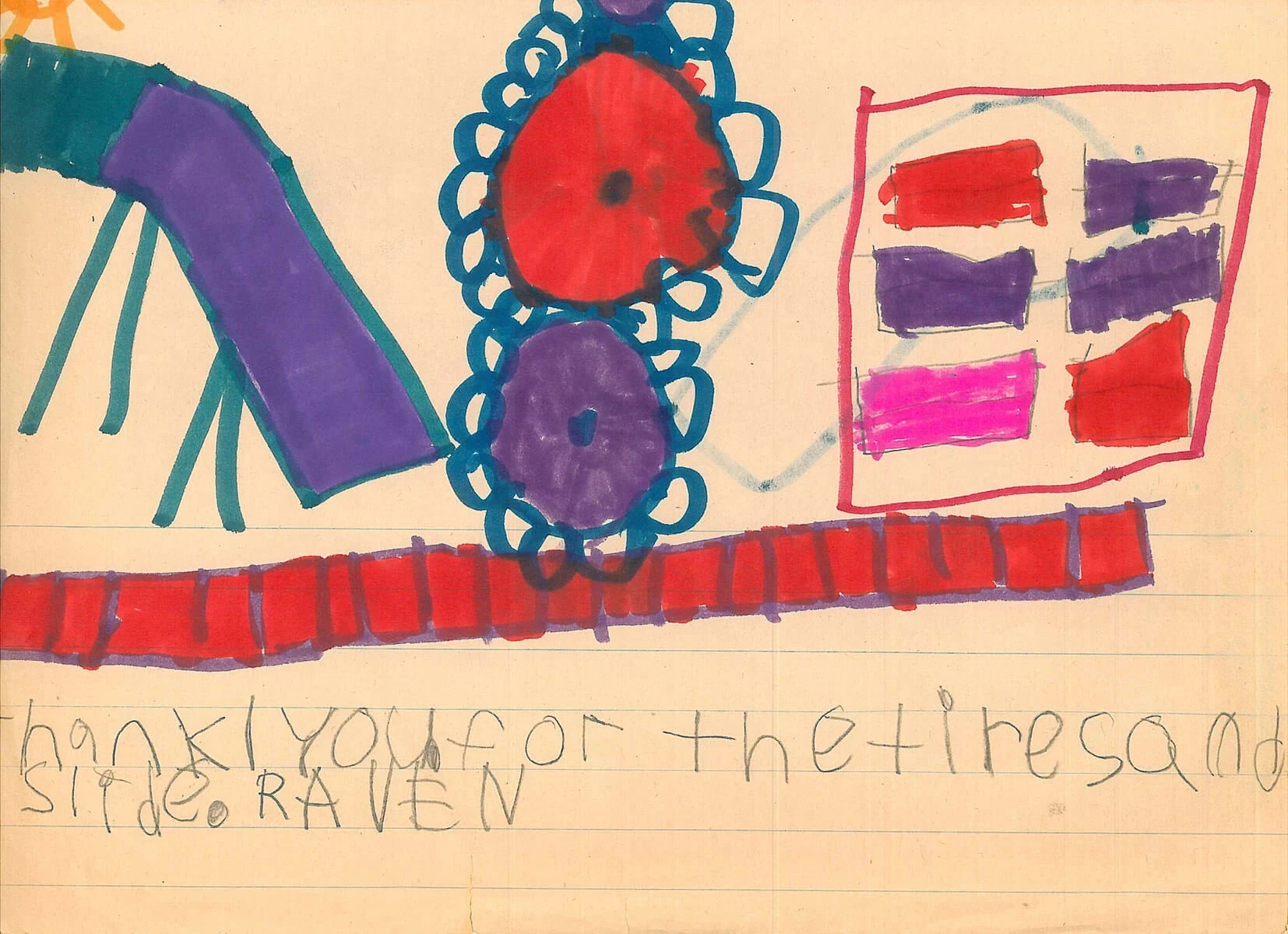By Owen Clarke
In the interconnected, digital world, everyone is everywhere all the time. Most job and college applications are online. Anyone can apply from anywhere in the world at any time.
With all that traffic, it can seem like there’s infinite competition (and infinitely scant time for employers and colleges to carefully consider each application). Sites like Indeed and ZipRecruiter let you fire off applications with the click of a button, and many companies are flooded with more applications than they can even review. Colleges are usually better equipped than employers to handle floods of applications—because they get them each and every year—but the point stands.
All this means there’s more pressure than ever for teenagers to have well-rounded, unique resumes even before they leave high school. But, understandably, this can feel difficult, if not impossible! Not everyone has a car. Not everyone has access to a computer. Besides, between work, school, family, college applications and social life, most kids simply don’t have the time to go around focusing on doing specific activities to flesh out their resume.
With that in mind, we believe the most important thing to remember about building a stand-out resume is…
Don’t Take it Too Seriously!
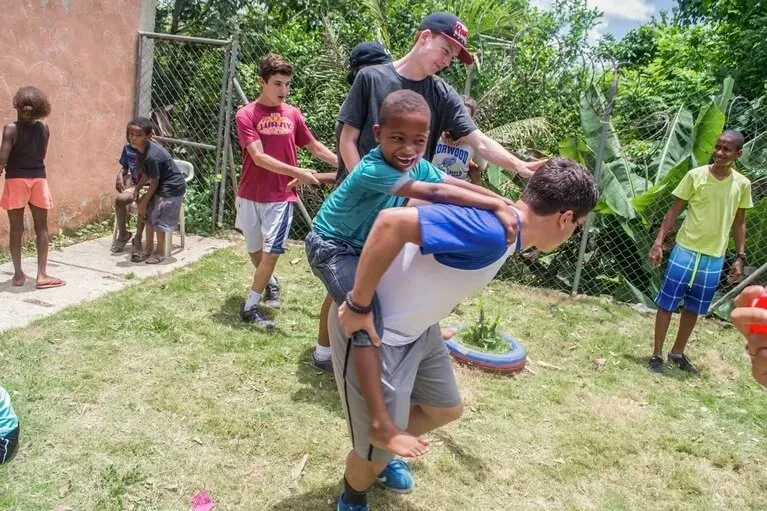
Here at VISIONS, we feel there’s been an exceptional amount of pressure placed on teenagers to build resumes and be in constant preparation for college applications. While much of this “encouragement” is coming from well-intentioned counselors, parents and teachers, encouragement and pressure walk a thin line, and the latter is undoubtedly a factor in many of the mental health crises we see among teens today. It also contributes to squelching the creative and playful spirits we should nurture in youth!
VISIONS doesn’t put high school resumes on pedestals, like some all-powerful college and job tool. Instead, we hope that kids will embark on these incredible teen years with a fun-loving sense of curiosity and courage. We believe that many colleges also value these qualities in their applications—and this belief is belied by the fact that countless VISIONS alum have gone on to attend some of the most prestigious colleges in the nation.
In short, we believe that character-building holds as much (if not more) value as resume-building.
NOTE: If these philosophies appeal to you, you may want to consider member colleges of the nonprofit CTCL (Colleges That Change Lives) while searching for potential higher education institutions. Check out the CTCL website for more information on “student-centered college search processes.”
But Yes… It’s Still Important
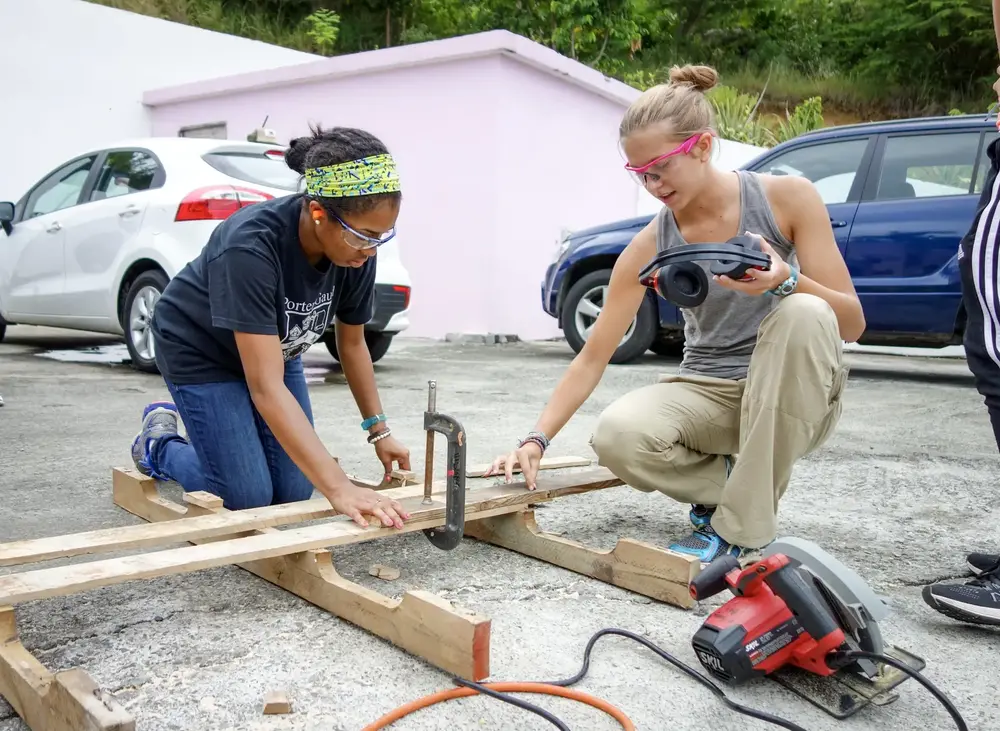
The above being said, building a resume is part of life in today’s world. A resume is one of the key components of any college or job application, and preparing a resume during high school is a shrewd way to make kids ready for the chapter of life after graduation, whether that means college, a gap year, attending trade school or perhaps heading into the workforce.
With that in mind, let’s dive into a few ways you can make your resume stand out from the pack!
7 Ways to Make Your High School Resume Stand Out
1. Start Something
As a high school student it might seem like your options are limited. Between hectic school, work and family schedules, it can feel impossible to jam extracurricular activities into your schedule. Luckily, you don’t always have to cater to the schedules of existing clubs, organizations and initiatives. You can start your own!
Starting your own club or organization isn’t just a stellar way to prove to colleges & employers that you’re well-rounded, with interests outside of academics. It also shows you have leadership skills and the initiative & drive to capitalize on your passions.
And hey, when we say “start something,” it doesn’t even have to be a permanent club or organization. You could go that route, but you could also just set up a one-time fundraiser for a cause that matters to you, or organize a mini volunteer project for a few weeks after school. No matter how big or small, when you take the initiative to start something, colleges and employers will take notice!
2. Go Deep, Not Wide
On a high school resume, it’s important to show commitment. Sure, you’re only a teenager, but chances are there are things you’ve worked at for a long, long time. Perhaps you’ve participated in a volunteer or service learning program like VISIONS, and you’ve come back and integrated that into one of your school clubs. (For more on this, check out the VISIONS Foundation!) Or perhaps you’ve spent a long period of time developing a skill, working for an organization or practicing a sport.
Starting something, like we talked about above, is great. But the key isn’t leadership. It’s commitment.
For example, hearing that you spent the past eight years honing your craft as a painter and served as a leader in your school’s art society, hearing that you’ve played club & school volleyball since you were nine years old and stuck with it throughout high school, hearing that you’ve played with LEGOs since you were a kid and now are competing in LEGO-building STEM competitions as a teenager…
It doesn’t matter what you choose to do, as long as you follow your passions. But whatever you do—dive in! Go DEEP, not wide.
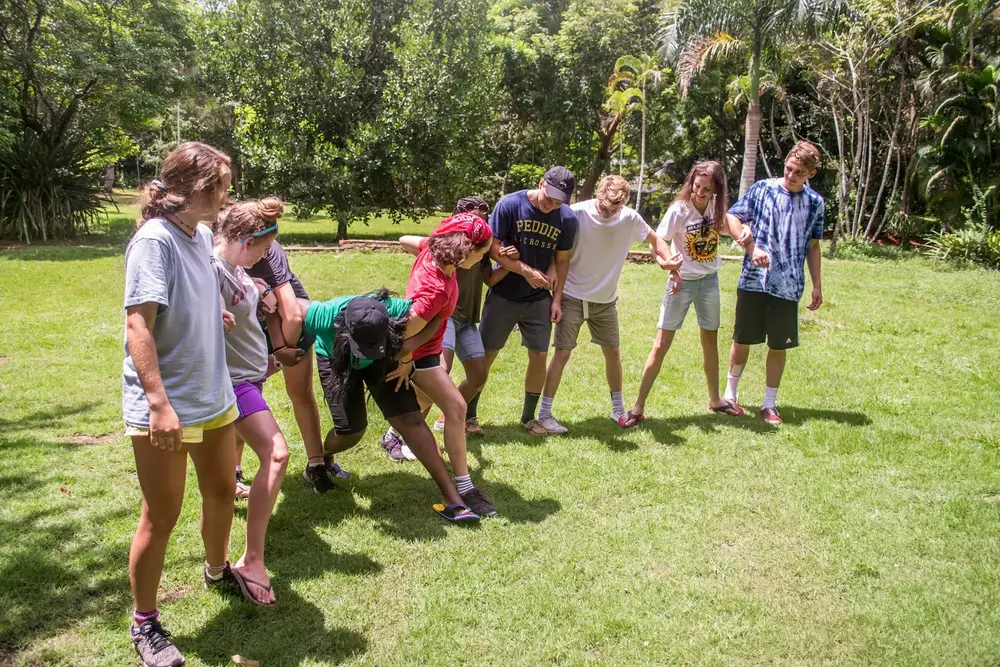
The good thing about high school resumes is that no one expects them to be long. You don’t have years and years of work experience at the age of 18. Nobody does! So keep your resume concise. Even most adult professionals keep their resumes to one or two pages. After high school, a resume shouldn’t be more than one page.
Less is more. No need to list every part-time job you’ve held or every extracurricular activity you’ve participated in. Employers and admissions officers will gloss over your resume if it’s crammed with meaningless tidbits about how you housesat for your neighbor for a week last summer or how you attended a couple of debate club meetings one semester. Instead, pick only the most revealing, impactful and relevant examples of work, hobbies, skills and character-building experiences—examples where you went deep, not wide.
4. Clean That Sucker Up!
A stand-out high school resume isn’t just concise. It’s clean.
Don’t mess with flashy fonts, text colors or highlights. This stuff doesn’t help your resume stick out from the crowd, it just makes it look juvenile and unprofessional. A good rule of thumb is that the information in the resume—not the way the resume looks—is what should catch the reader’s eye.
Use black ink and an easy-to-read, professional font, like Times New Roman. Make sure to use proper spelling, grammar and punctuation, and make your contact info easy to find, ideally bolded & enlarged at the top of your resume. Each individual resume component (Work, Education, Extracurriculars, etc.) should also be bold and enlarged. Keep things clear and clean.
5. Rep Your Roots
Where you come from doesn’t determine where you’re going, but there’s no need to distance yourself from your roots on a resume. Show some hometown commitment!
Colleges and employers like to see that you’ve made the best of the opportunities you have and then given back to the people and community around you. For example, it’s terrific to go away from home to do a service learning program in a new environment. But are there probably ways you’ve brought those experiences & lessons back, applying them to your own community, whether at school, in a club or your city at-large. This commitment to uplifting your community—the people and places around you—is something colleges and employers highly value.
NOTE: If focusing on volunteer work for a college essay—tell a specific, sincere story as opposed to highlighting your service & good deeds. Zoom in, not out. We’ll cover this more in an upcoming blog about writing college essays.
6. Don’t Be Afraid to Network Early
In the digital world, personal branding and authenticity are everything. It might seem early to start networking, but it’s really never too soon. So build a website for yourself. Make a social media profile that pertains to the field you hope to dive into. (For example, if you want to go into agriculture, maybe you can start a YouTube or Instagram documenting your gardening work.) Make a LinkedIn profile and list your volunteer experiences in addition to your work experiences. It’s not about the professional boxes you tick, it’s about showcasing what you’re doing with your time and energy, and why it’s relevant to your field of study/employment.
NOTE: I’m a full-time freelance writer & journalist (this is me), and it wasn’t so long ago that I was graduating high school & working on my resume myself! I quickly learned that employers value experience & authenticity FAR more than degrees and accreditations. When pitching stories to magazines and newspapers, editors are far more likely to green-light a pitch from an inexperienced writer who does have authentic, lived experience relating to the topic, instead of a highly professional writer with a graduate degree but who has no personal connection to the story. Networking and branding is the best way to show this authenticity. Okay, back to the article… : )
Networking doesn’t have to be stressful, “professional” or targeted. Particularly at this time in your life, it’s just about connecting with people who are doing things that interest you. Perhaps you’ll also connect with alum from some of your target colleges who live near you, or link up with someone performing work in a professional field you hope to enter. In addition to the tangible benefit of making connections, networking also demonstrates a sense of maturity and professionalism that top-ranking colleges look for in their applicants.
That said, remember that networking doesn’t mean you have to dive into technology. (In fact, VISIONS is a tech-free program.) Technology is the way of the professional world these days, but there are plenty of tech-free ways to network, too, like attending job and college fairs or local meetups and passing out your resume in person.
7. What are YOU Proud Of?
Okay, so we’ve dropped a lot on you. Let’s dial it back a bit.
All the advice in the world will get you a long way, but it won’t give you the juice for that final leap into the realm of a truly spectacular resume. If you want to get there, you have to look inward.
Forget about what society tells you is your biggest accomplishment. Forget about what your teachers care about, what your guidance counselor cares about, what your parents and classmates and friends care about.
Above all else, a resume should highlight the efforts YOU are most proud of in life. It should take whatever you’ve done that impressed YOU the most and put it front & center. If you focus on that, then your best qualities will naturally shine through. This makes a resume stand out infinitely more than checking boxes based on what you think admissions officers, recruiters, employers or your parents want to see.
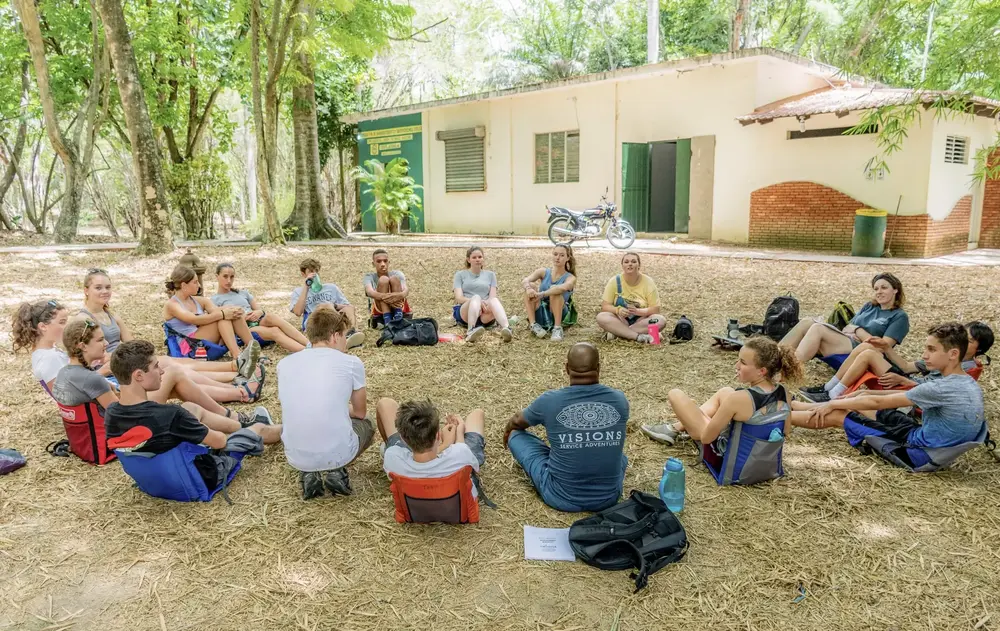
Go Deep with VISIONS
We hope you have a better idea of how to build a stand-out resume while in high school—and more importantly—that you realize it doesn’t have to be a stressful process. It’s not about ticking boxes and logging service hours. It’s about following your passions and diving deep!
We’d be remiss not to mention that a service learning adventure with VISIONS is the perfect catalyst for many of the items on this list. We encourage our participants to go deep, put down roots and connect with people and places.
With that seventh piece of advice in mind, many of our participants say that they’ve never felt more proud of themselves than they do after a summer getting out of their comfort zone & serving others. The same could be true for you.
Want to find out for yourself?



